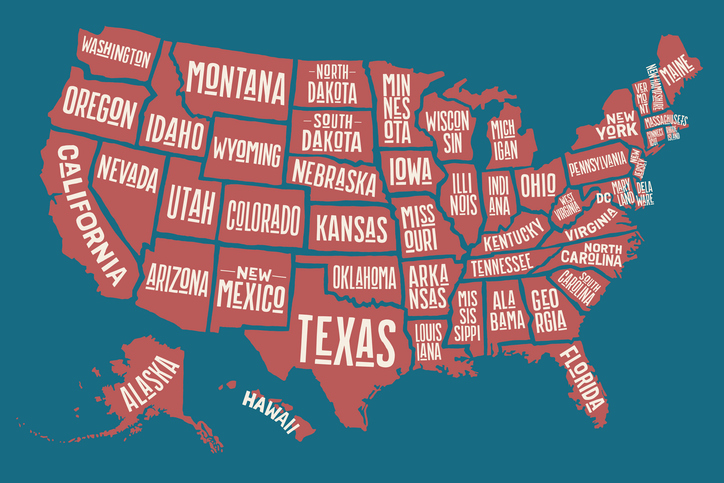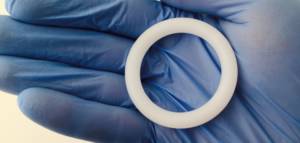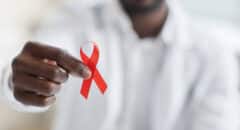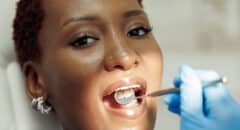
It doesn't matter when or where HIV started, it's all over the world and in your neighborhood. But it's more prevalent in some cities compared to others. And it's not where you think. Take a look at these cities:
10
Baltimore, MD – 24.3
Baltimore may have great seafood and be the home of HBO's "The Wire," but according to GetTested.com, HIV infection rates in Baltimore are on the rise due to a lack of education.
HIV is a lifelong infection that, if left untreated, can lead to AIDS (acquired immunodeficiency syndrome), according to AIDS.gov. AIDS occurs when a person’s immune system becomes damaged, and people who are diagnosed with AIDS typically survive about three years.
9
Jacksonville, FL – 25.1
Although Jacksonville isn't thought of as a "party city" like other destinations on GetTested.com's list, the site suggests that, "The number of business people and tourists who travel to Jacksonville," might contribute to the high rates of HIV diagnoses and prevalence there.
Forty-four percent of people diagnosed with HIV live in the South, even though the region only contains about a third of the U.S. population. Aside from Baltimore, all of the cities on GetTested.com’s list are in the South.
8
Columbia, SC – 25.6
South Carolina's Channel 10 WISTV.com reports that poverty, rural geography, lack of affordable healthcare and social stigma all contribute to the prevalence of HIV in the South.
"Researchers say being a part of the 'Bible Belt' adds to the stigma," they report, meaning that in some cases, a diagnosed person might not seek treatment due to fear of rejection from the religious community.
7
Atlanta, GA – 25.9
We already know about the ATL having high rates of HIV, but according to GetTested.com, more than 1,000 people are diagnosed with HIV each year in Atlanta. What’s more, 50 percent of those people aren’t diagnosed until they already have AIDS.
Within the first two to four weeks of infection, some people experience flu-like symptoms, such as fever, chills, rash, night sweats and fatigue, according to AIDS.gov. Others don’t show any symptoms at all, and about one in eight Americans with HIV don’t know that they have it. The only way to know if you have AIDS is to get tested.
6
Memphis, TN – 27.6
About 2,000 people in Memphis who have the disease are not aware of it. And with that African-American gay and bisexual men are most affected by HIV, according to AIDS.gov, followed by white gay and bisexual men.
Heterosexual contact accounted for 24 percent of all diagnoses in 2015, and 6 percent of infectionswere the result of injection drug use.
5.
Orlando, FL – 28.8
According to the CDC, the rate of HIV diagnoses in Orlando decreased slightly (0.9 percent) from 2013-2015. New HIV infections appear to be declining globally as well.
Most people in these regions still don’t have access to prevention, treatment and care programs, and only 60 percent of the 36.7 million people living with HIV/AIDS know their status.
4.
Jackson, MS – 32.2
GetTested.com reports that in Jackson, there is “a concerted effort to inform the public about the PrEP pill.” A 2014 survey of LGBT Mississippians reveals almost half of respondents don’t consider their doctorLGBT-friendly and almost half experience harassment in public establishments.
According to the Human Rights Campaign, "the main reason HIV continues to spread in Jackson is because of stigma behind the disease."
3.
New Orleans, LA – 36.9
An excess of 19,000 people in Louisiana are living with HIV. More than half of those people have AIDS, according to GetTested.com.
Although African-Americans make up only 32 percent of the state population, they represented 73 percent of the state’s new cases in 2011, according to the Louisiana Department of Health.
Those who go visit the "Big Easy" need to wrap it up as you let the good times roll.
2.
Miami, FL – 42.8
In 2015, Miami had the highest rate of HIV diagnoses in thecountry. It also had the highest prevalence of the disease at the end of 2014, according to the CDC.
1.
Baton Rouge, LA – 44.7
In a surprise jump up the ladder, Baton Rouge claimed the No. 1 spot on this list.
The company reports that many of the infections there “are due to shared needles, since the city is the center of a massive opiate addiction issue.”
VAGINAL RING WITH ANTI-HIV MEDICATION: A POSSIBLE ALTERNATIVE TO PREP

Ladies, would you wear a vaginal ring that regularly releases an anti-HIV drug while inside you?
One group of researchers sure hopes so.
The experimental vaginal ring – which is flexible and made of silicone – is packed with dapivirine, an HIV prevention drug. Researchers provided the rings to more than 2,600 women ages 18 to 45 living in Uganda, Zimbabwe and Malawi, South Africa.
When used properly, the ring is inserted into the vagina and left there for a month. Then, it’s replaced with a new ring. Each ring contains a new dose of the anti-HIV drug.
After interviewing 214 of the participants, researchers found that the ring didn’t negatively affect the women’s physical sex lives.
But, some women did admit to worrying what would happen if their sexual partners found out about the ring by feeling it during intercourse. They wondered if their partner would…
…question them, according to NPR. So, some women took the ring out before intercourse and others didn’t participate in certain sexual positions.
“Condoms are problematic for women. When women demand use of a condom, they can be subject to partner violence or rejection of stigma, ” said Dr. Anthony Fauci, director of the National Institute of Allergy and Infectious Diseases.
So, if a man suspects that a woman is worried about him being infected, things could go badly for her.








